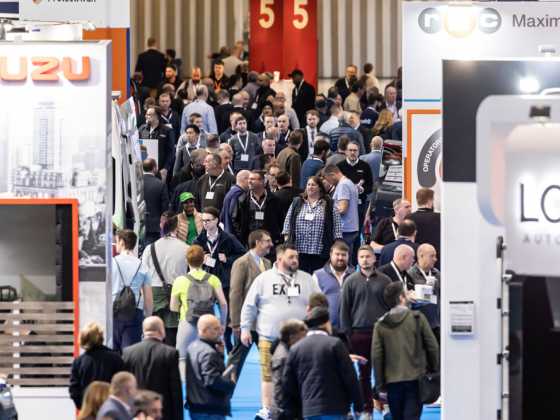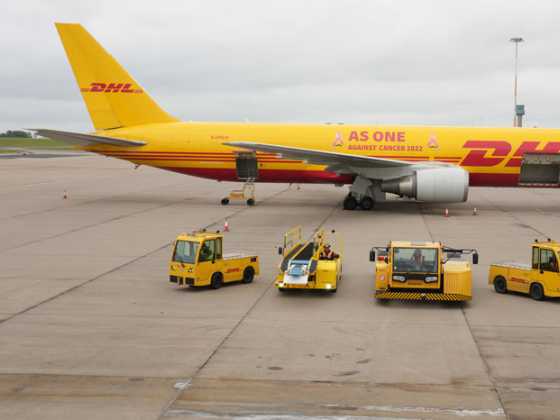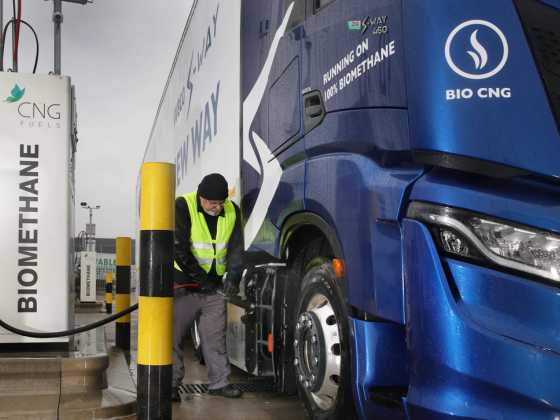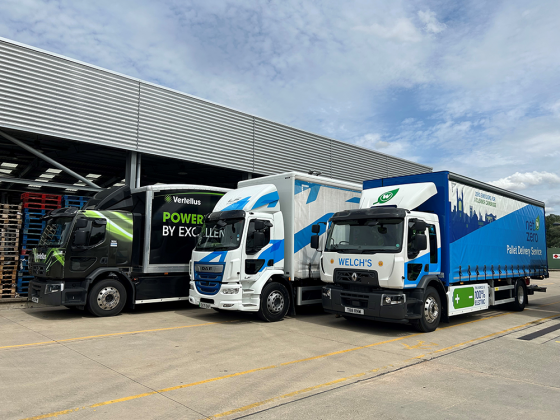Reducing haulage emissions for better air quality
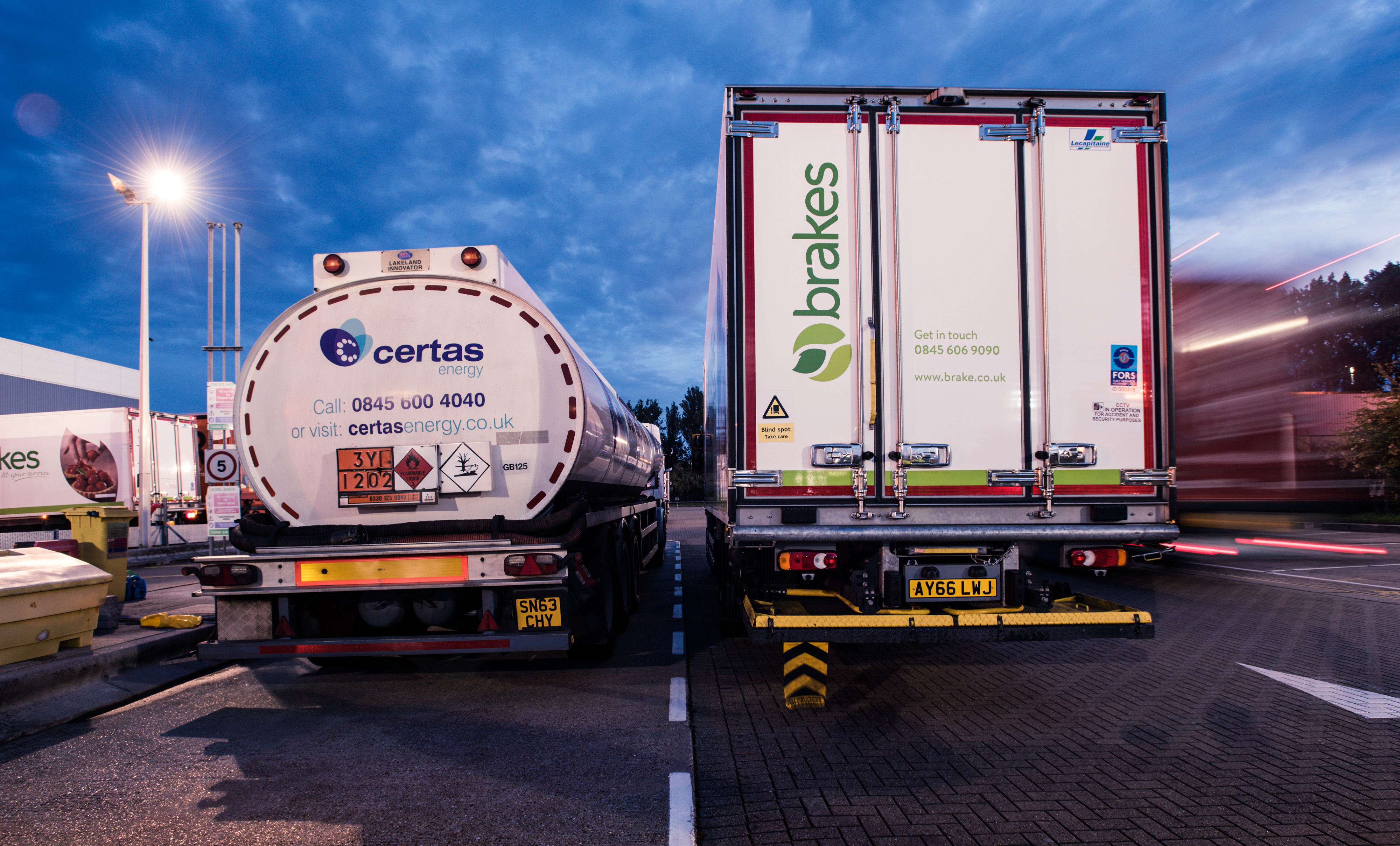
As the government turns to the transport sector to play a greater role in tackling the air quality crisis, how can fleet managers ensure their vehicles meet low emission requirements without being crippled by logistical and cost implications? Brian Worrall, from Certas Energy investigates
Following the inquiry into the government’s approach air quality in the UK, a joint report published by four of Parliament’s Select Committees has called for a step change in the UK’s approach to lowering harmful airborne pollutants.
The additional measures suggested in the ‘Improving Air Quality’ report, include bringing forward the date by which manufacturers must end the sale of conventional petrol and diesel vehicles, and the establishment of a new ‘clean air fund’ following a ‘polluter pays’ principle. Most significantly, the report calls for a new Clean Air Act to enshrine the right to clean air in UK law – placing public health and the environment at the forefront of all future air quality policy.
According to the UK National Atmospheric Emissions Inventory, road transport is the largest single UK source of nitrogen oxide (NOx), accounting for almost one third of UK emissions. Whilst the industry has taken a number of steps to reduce pollutants – the Road Haulage Association predicts that NOx from lorries will have more than halved by the end of 2019 – more needs to be done to cut the harmful emissions that are contributing to poor air quality.
The road to lowering emissions
Road haulage is the lifeblood of the UK, delivering 98 per cent of food and consumer goods within our borders. The haulage industry is essential to keeping our country moving, but increasing regulations mean that road transport businesses are facing added pressure to reduce harmful levels of emissions produced by their fleets.
The ‘Improving Air Quality’ report is the most recent development in the government’s plan to tackle air pollution in the UK following the introduction of the T-charge last year, which penalises vehicles that fail to meet Euro 4/IV standards £10 a day for driving in central London – in addition to the current £11.50 congestion charge. While the T-Charge aims to reduce congestion and improve air quality in the capital, for the haulage companies that transport vital goods and services to businesses and communities, the fee is an additional cost to an already margin sensitive industry.
So as the government turns to the transport sector to play a greater role in tackling the air quality crisis, how can managers ensure their fleets meet low emission requirements without being crippled by logistical and cost implications?
A low-emission future
Whilst we are all aware of the impact that heavy use of diesel has on the environment, the reality is that the haulage industry can’t just switch off its reliance on the fuel overnight, especially for businesses whose fleets and machinery rely on it to keep moving. The good news is that there are a number of alternative solutions readily available to haulage companies looking to improve air quality.
Electrification is often regarded as the future of green and sustainable vehicles, with many commercial vehicle manufacturers announcing their intentions of going electric in the future. However, the current state of technology means that electrification of entire fleets is not yet a viable option for many – reduced range, weight of vehicle issues, cost and availability of infrastructure to charge electric vehicles, all present challenges to efficiency and cost‑effectiveness that make mass uptake in the technology in the immediate future unlikely.
Diesel vehicles that meet the Euro 6/VI standard, introduced by the European Union to reduce harmful pollutants from vehicle exhausts, emit lower levels of NOx and PM than older vehicles. While trucks that meet the Euro 6/VI standard have lower levels of harmful emissions and would not be subject to the T-Charge, fully upgrading to a Euro 6/VI compliant fleet comes with significant cost and infrastructure implications.
A cleaner fuel for cleaner air
Alternative fuels are also powering the transition to lower emission mobility, with a mix of biofuels, hydrogen and LNG amongst others offering a solution for a cleaner transport industry. One example of a cleaner alternative to diesel is Shell GTL Fuel, a gas‑to‑liquid solution and member of the paraffinic family of fuels that has improved combustion properties inside standard diesel engines.
Certas Energy is the exclusive provider of Shell GTL Fuel in the UK, supporting customers in their efforts to reduce emissions with a readily available, cleaner burning alternative to diesel that can be used to help reduce local emissions of regulated pollutants including particulate matter, nitrogen oxide, and carbon monoxide and hydro carbons.
As a drop-in solution that can be used as a direct replacement for diesel – no modifications to engines or equipment are required. Shell GTL Fuel is classified as non-toxic and readily biodegradable, with additional benefits when compared to conventional diesel including being harmless if inhaled, has a low risk of irritation in the event of skin or eye contact and, if spilled, will disperse naturally within weeks.
Brakes case study
To help reduce harmful emissions and improve local air quality, Certas Energy (who has supplied fuel to Brakes for over eight years) has helped Brakes, the leading food wholesaler in the UK to switch all its DAF LF55.220 18T trucks operating in the London area from diesel to the cleaner burning Shell GTL Fuel.
Steve Webster, head of indirect goods & services procurement at Brakes commented: “Air quality is a big issue in the UK and our industry has an important role to play in helping to reduce harmful emissions. With over 2,000 of our trucks on the road each day, we are always looking at ways to reduce emissions and operate more sustainably.”
“Our drivers have commented that there has been no adverse effect on engine performance by switching fuel and we’ve had a lot of feedback that the engines seem to be quieter particularly when idle. This is a major advantage as many of our routes see us travel through residential areas. The fact that we’ve been able to make this change with no issues from an operations perspective with our vehicles is also a major plus. It’s great to know that we’re having an immediate and positive impact on the reduction of NOx and PM emissions in London – helping our environment and the communities that live in it.”
Brakes has experienced a number of additional benefits since beginning its trial of Shell GTL Fuel in September 2017, including a 0.4 per cent miles per gallon improvement across the fleet, which represents a saving of up to 40,000 litres a year. Where Brakes Euro 6 vehicles were previously required to carry out forced diesel particulate filter regeneration cycles approximately once a month, the vehicles running on Shell GTL Fuel have not required a single cycle since the switch from diesel. The fuel has also contributed to improved fuel island area safety, as Shell GTL Fuel is less slippery than regular diesel with a higher flash point.
Brakes has branded all of its DAF trucks operating in the London area with the Shell GTL Fuel, Certas Energy and DAF logo with the tag line ‘Delivering on a cleaner-burning diesel for London’ to raise awareness of its commitment to lowering emissions. Following the successful use of Shell GTL in the DAF trucks, Brakes has also started using the fuel in 36 of its Mercedes trucks.
It’s great to see a major national brand like Brakes Group adopt alternative fuels like Shell GTL Fuel, recognising that they are an important mix of the solutions needed to tackle the air quality crisis. Switching to a cleaner burning alternative to diesel means Brakes is having an immediate impact on emission levels in London. With the recent introduction of the T-charge in London and impending roll out of Ultra Low Emission Zones in cities across the UK Shell GTL Fuel offers an easy to implement, instantly effective measure to help reduce harmful emissions without impacting productivity.
A major role to play
Companies involved in transport and haulage have an important role to play in helping to reduce harmful emissions for the benefit of the environment, their workforce and our local communities. Upgrading to low‑emission fleets can often present logistical challenges and cost implications. While alternative fuels may cost slightly more than conventional diesel, as uptake increases and supply networks are extended across the country, the price will inevitably come down. We’re committed to supporting the haulage industry work towards a cleaner, greener future without compromising performance or profitability and strongly believe that alternative fuels, such as Shell GTL Fuel, have an important place in the mix of solutions that will help to improve air quality in the UK.

